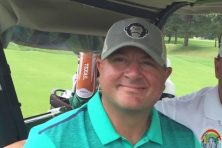Letter to the Editor: ‘We, the People…’ Language of Division or Unity?
- Share
- Tweet
- Pin
- Share
I was taught you never say “all, everyone, all the time, always, every time, and never.” “All” inclusive boxes are the bricks in the foundation of intolerance, anger, and division. The cement of the foundation? The verb ‘to be:’ “he is, she is, they are.” Put them together and you get “all of them are,” “everyone is,” and “they will never change” among many expressions. The language of exclusion creates shame, hopelessness, anger, and frustration and may lead to violence.
As an experiment, try talking to a family member or friend without using is/are. Try to describe your community without using modifiers of universality (all, every, always, never). It will challenge you. It will change you.
Human beings are tribal. It is instinctive and deeply rooted in our genetics. Survival has been based on collective action and defense. Exclusion and inclusion are the two most powerful acts for a social species. We often use exclusion to punish and in some cases to kill. When we include people, it may be seen as a reward.
Remarkably, but predictably, we can change our tribal affiliation almost instantly. When students from two middle schools attend a single high school, they quickly identify with one group – their new school – and fragment into sub-groups by exclusion and inclusion. When you scramble the membership of two foursomes with the same eight golfers, they are harassing each other (including their old teammates) by the time they reach the first green.
“Is, are, they, them, and those” create exclusion or inclusion by identity. “Always” and “never” create exclusion or inclusion over time. Our language delimits our thoughts like a surveyor’s lines delimit property.
If the best strategy for survival is collective action, we must change our use of language and thus our thoughts about each other.
John M. Rybski
Algoma, Wis.

